Winter approaches in Bosnia's Vucjak camp
-
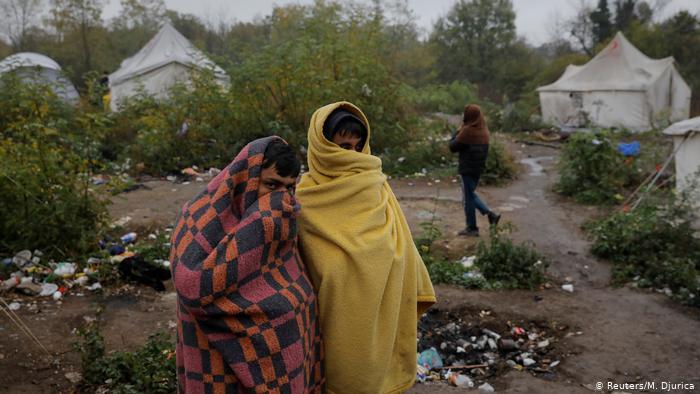
When all you feel is cold: at the end of October, Vucjak refugee camp got a foretaste of winter. Temperatures in Bosnia plummeted to well below ten degrees Celsius. Most migrants are not equipped for the cold and therefore depend on donated clothing and blankets. Some do not even have proper shoes -
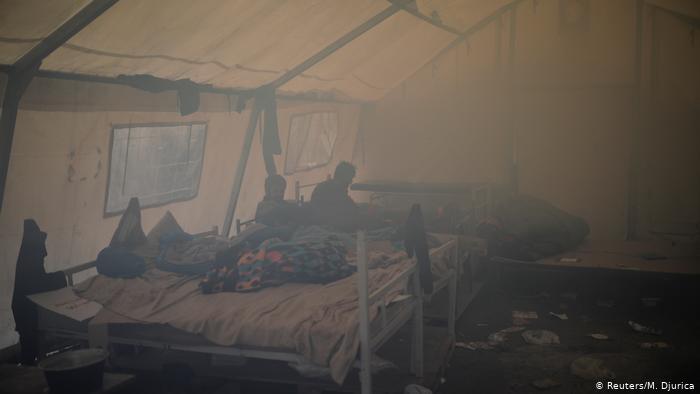
Endure the smoke or freeze: desperate to keep warm, the Syrians, Afghans and Pakistanis who are stuck here collect firewood for heating. This in turn makes the shelters very smoky. The inhabitants are faced with a choice: to freeze constantly in a tent made of thin fabric or to risk respiratory problems -
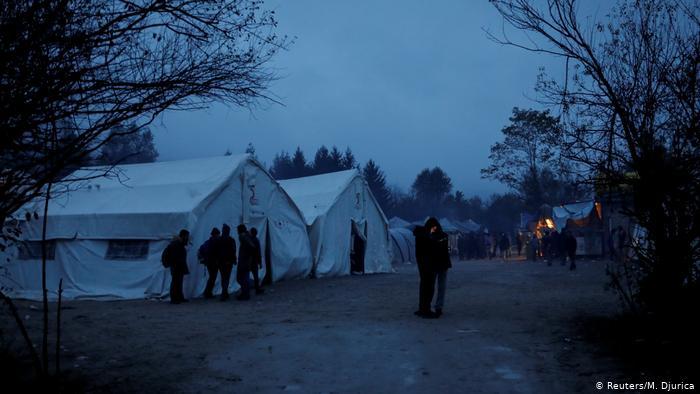
Life on the garbage dump: Vucjak was born out of necessity in June. There are currently only 7000 to 8000 migrants in Bosnia and Herzegovina. But most of them are concentrated in the northwest near the small town of Bihac. With all the camps overcrowded, the city set up this improvised camp on a former landfill a few kilometres from Bihac. It does not meet international standards -
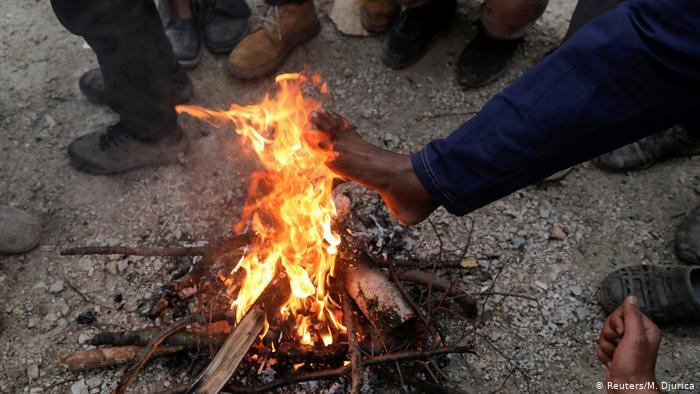
Desperate measures: aid organisations are urging the Bosnian authorities to close Vucjak and provide better accommodation for migrants. "If people stay there for the winter, there will be deaths – in a few days, in a few weeks," warns Peter Van der Auweraert, Western Balkans coordinator of the United Nations International Organisation for Migration -
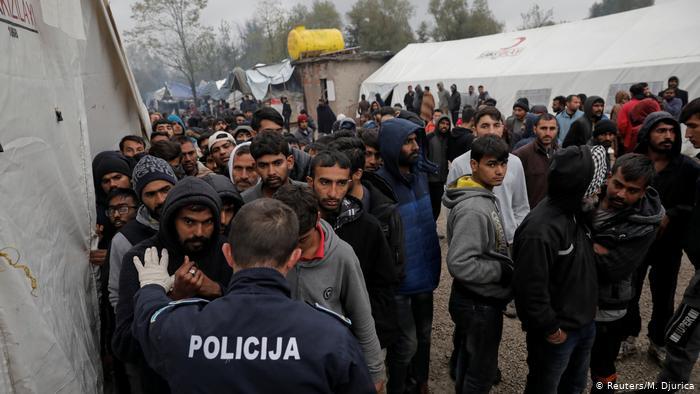
No remedy in sight – on the contrary: there is a rumour that Vucjak is to be evacuated. What's more, the authorities have also threatened to close another shelter in Bihac soon. That would be a "catastrophic decision", says Van der Auweraert of the IOM. Even now, 2,000 to 2,500 people in the region do not live in safe shelters. If the centre in Bihac were to disappear, that would be 1,300 more -
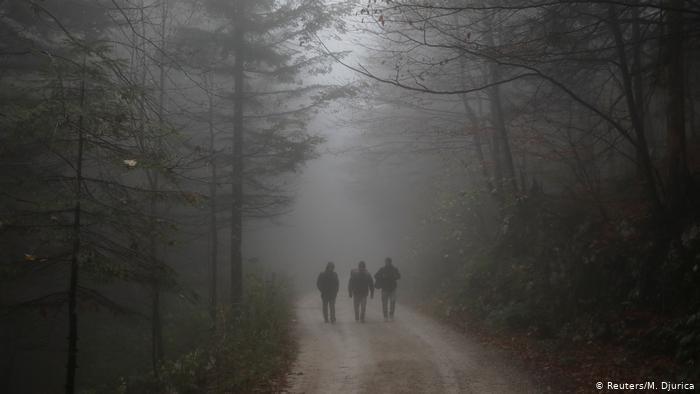
The EU is so near – and yet so far away: Vucjak is only about eight kilometres from the border with Croatia. Many fugitives try to enter the EU illegally across the green border. A lot of them do not make it and return to the camp, like these three men from Syria. It is better that they stick to the road. Landmines from the Yugoslavian wars in the 1990s are still everywhere -
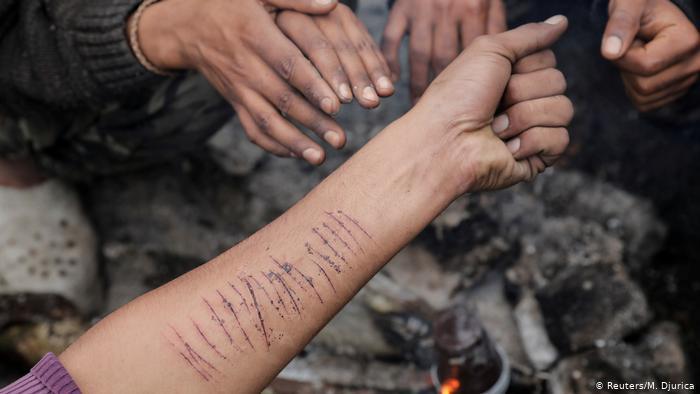
Visible pain: leaving one's homeland and searching for a life in safety is hard – both physically and mentally. This man from Pakistan cuts himself because he misses his girlfriend so much. According to psychologists, this kind of self-injury acts like a valve to relieve internal pressure -
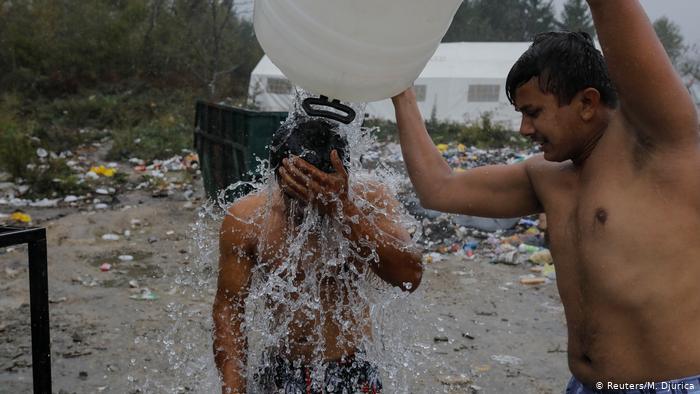
Cold showers: there is only cold water from the canister in Vucjak. The sanitary conditions are catastrophic. Diseases like scabies are spreading. Moreover, medical care is rudimentary. Only residents with really serious illnesses or injuries are taken to hospital -
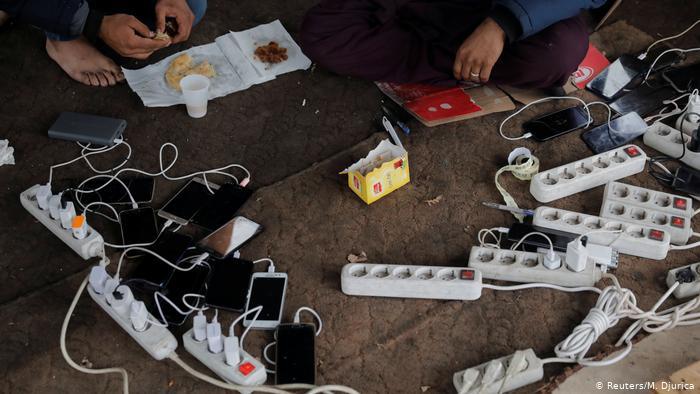
A link to the outside world: in addition to water, electricity is also scarce in the camp. However, those who still have their mobile phones can count themselves lucky. Many refugees say their telephones have been destroyed or stolen by Croatian police at the border. Croatia rejects the accusation. A mobile phone is the most important possession for migrants. They use it to keep in touch with family and friends and organise their escape route -
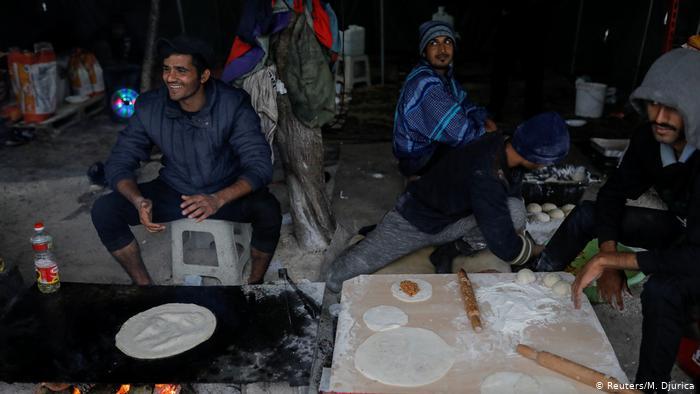
A little piece of home: these men try to make the best out of the few things they get in Vucjak. They bake the flat breads they know from home. Red Cross food is often only enough for two meagre meals a day. In the summer, Red Cross leader Selam Midzic criticised the central government in Sarajevo for leaving the region alone with the migrants -
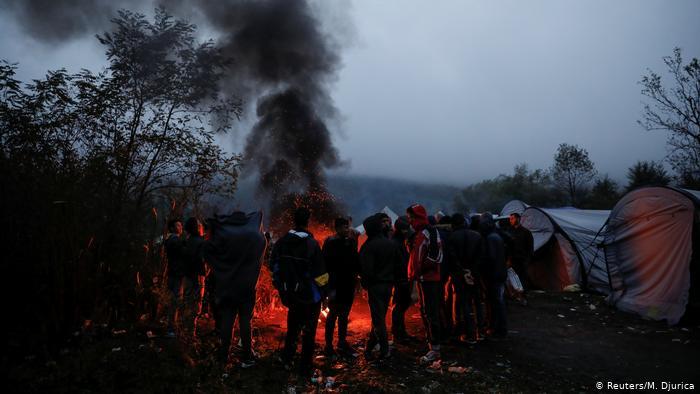
Standing together – and wanting to leave: a fire is not enough to warm body and soul. People want to leave Vucjak as quickly as possible. "In Slovenia and Croatia I have seen buildings for animals that were better than this camp," says a man from Afghanistan. "This is not a camp. This is not for people"
https://qantara.de./en/node/22722
Link
To all image galleries
